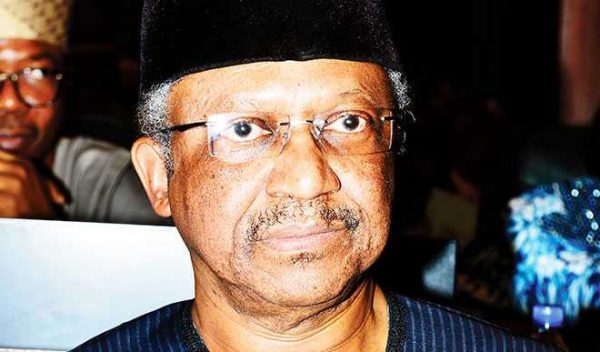The Minister of State for Health, Dr Osagie Ehanire, on Thursday said the ministry would establish Emergency and Trauma Care Centres across the country to cater for casualties from road accidents.
Ehanire made the disclosure in Lagos at the 41st Annual General Meeting and Scientific Conference of the Nigerian Orthopaedic Association with the theme: “Musculoskeletal Problem in Children”.
He said that there was inadequate emergency and trauma care across the country, which was largely in the domain of orthopaedic and trauma surgery.
He said: “The emergency and trauma care unit is seriously in need of improvement; we have a very high report of casualties on Nigeria roads.
“We lose more people on the roads than HIV, Tuberculosis and Malaria annually; it has become a silent epidemic.
“The Federal Ministry of Health is in the process of addressing the gaps and is creating a national emergency medical and ambulance service.
“To become the first and most coordinated emergency and trauma responsive system that we have had, the service will involve both private and public sectors and bring stakeholders together from various ministries.
“From the Ministry of Works, Transportation and from the law enforcement officers and transport workers, insurance companies, fleet operators and non-governmental organisations.
“To focus on all areas of finding solutions of particular importance with the accident prevention measure, because as we know prevention is often cheaper than cure.”
The minister said that the ministry was proposing the creation of a Health Emergency Fund, out of which there would be seed money from the five per cent that was provided for from the basic healthcare.
Ehanire said: “We observe that there are casualties and losses of lives and limbs due to the fact that there is delay and hesitation from hospital to give treatment because they are worried about who will pay.
“We are also identifying urgent care centres that will be developed from existing assets along the road corridors at reasonable intervals where urgent care will be done.’’
Also, Dr Ugochukwu Enweani, President of the association, said that the conference was aimed at bringing the attention of government and public agencies to orthopaedic care in Nigeria.
Enweani said that the establishment of Trauma Centres in strategic locations in the country has not been materialised.
He said: “It is just the lone establishment at the National Hospital, Abuja that has seen the light of the day and yet trauma is becoming the next looming epidemic.
“This is due to the carnage on our roads that speaks volumes of the state of trauma care in Nigeria.”
Enweani said that the development of 24 Hour Emergency Ambulance Services and advocacy on public health education on trauma would help to curtail casualties from emergencies.
He said that the annual conference provides veritable fora for umbrella organisations of orthopaedic surgeons to interact and exchange ideas in the diverse fields and disciplines of orthopaedic.
Enweani said: “It is of utmost importance to the Nigerian Orthopaedic Association that the practice of orthopaedics in Nigeria is kept on a high pedestal enamored by knowledge, skill, technology and sound practice.’’
Speaking on the theme, Dr Nurudeen Issa, President of Limb Lengthening and Deformity Correction Society, said that the theme was carefully chosen because of the rise in children suffering from deformity.
Issa said: “Some deformities are manifest after birth and some in childhood; so, it is important for parents to continue to observe their children and when an abnormality is noticed.
“They should report to their primary physicians who will now refer them to an orthopaedic surgeon.’’


